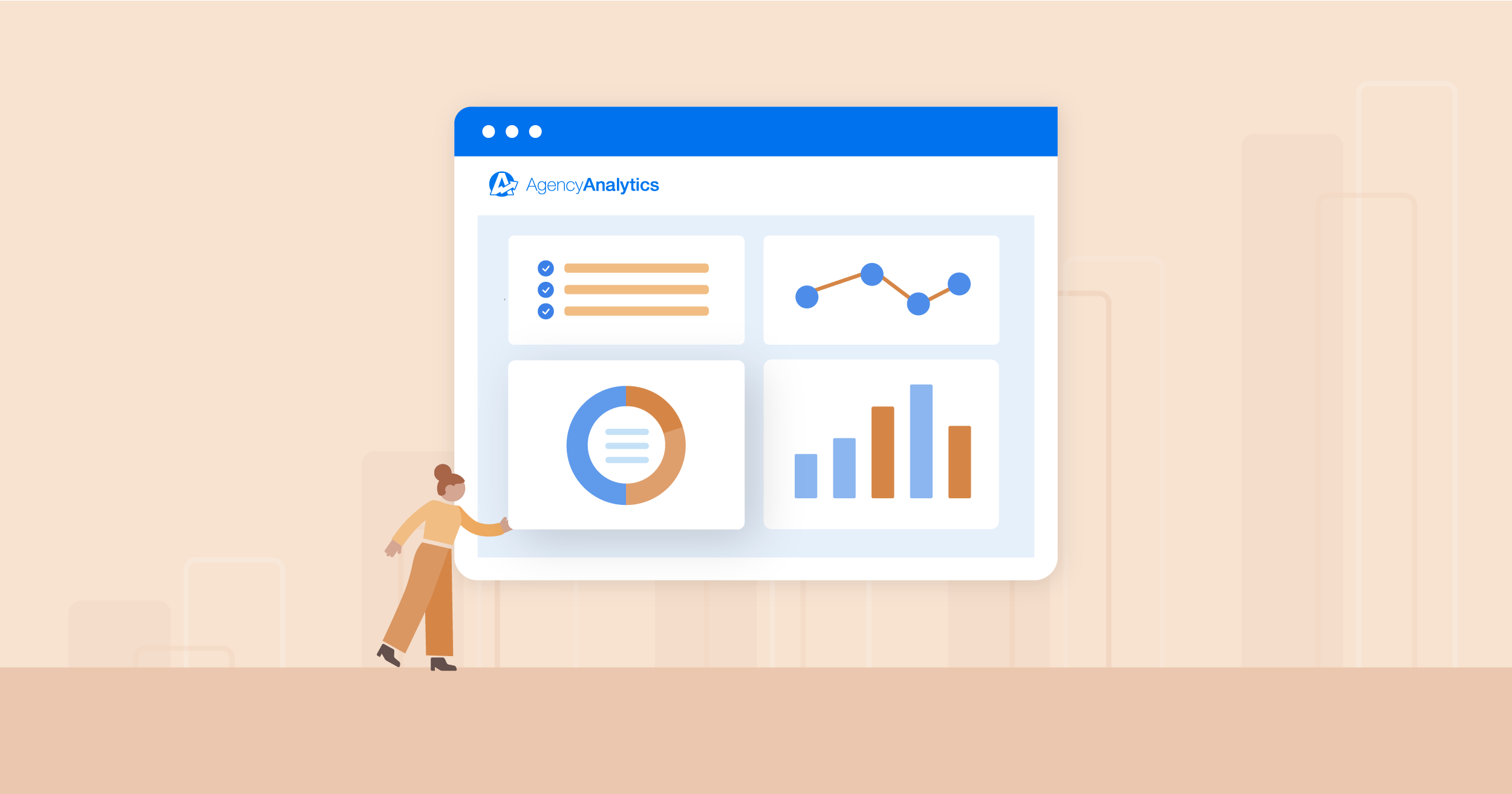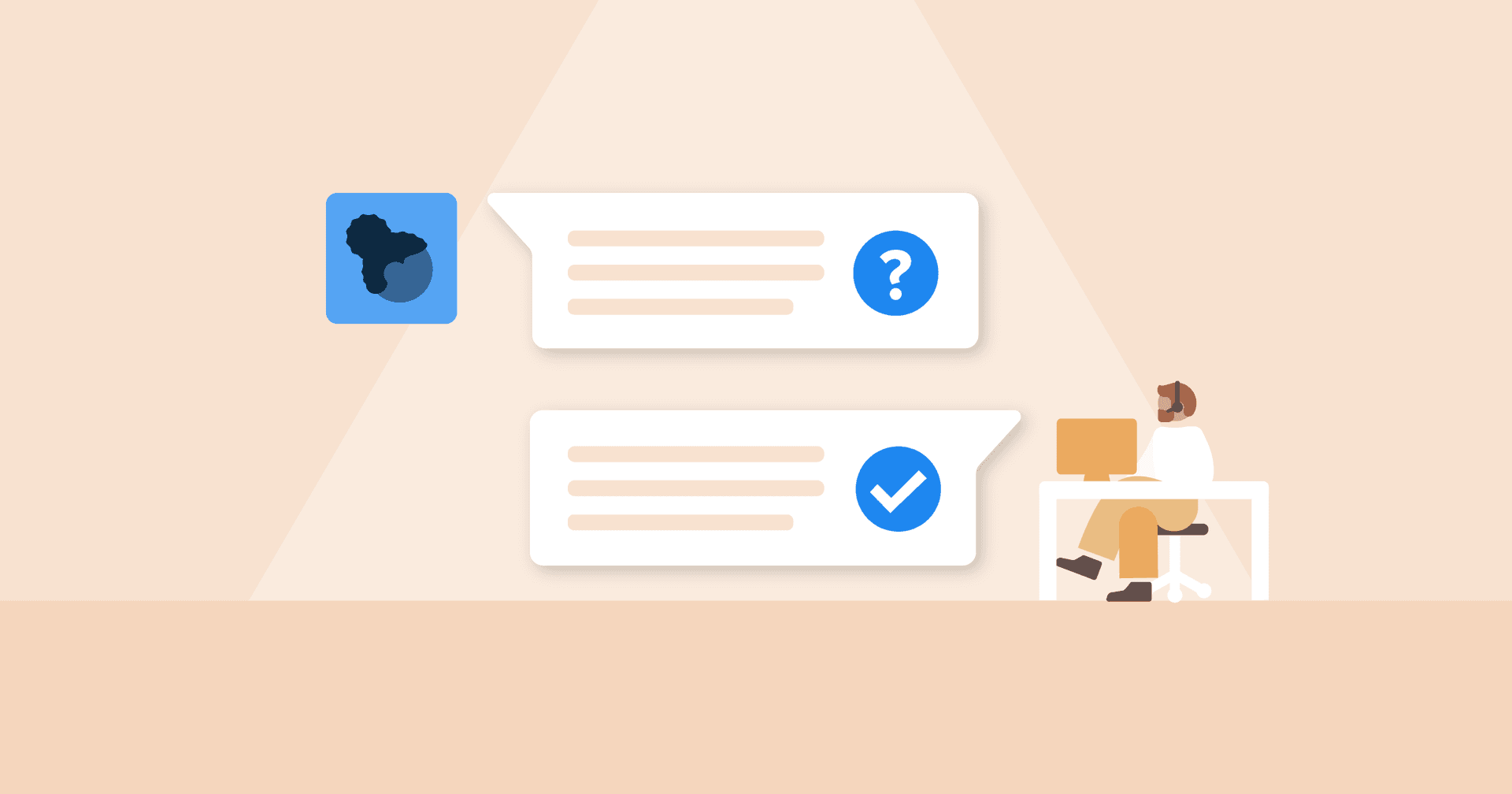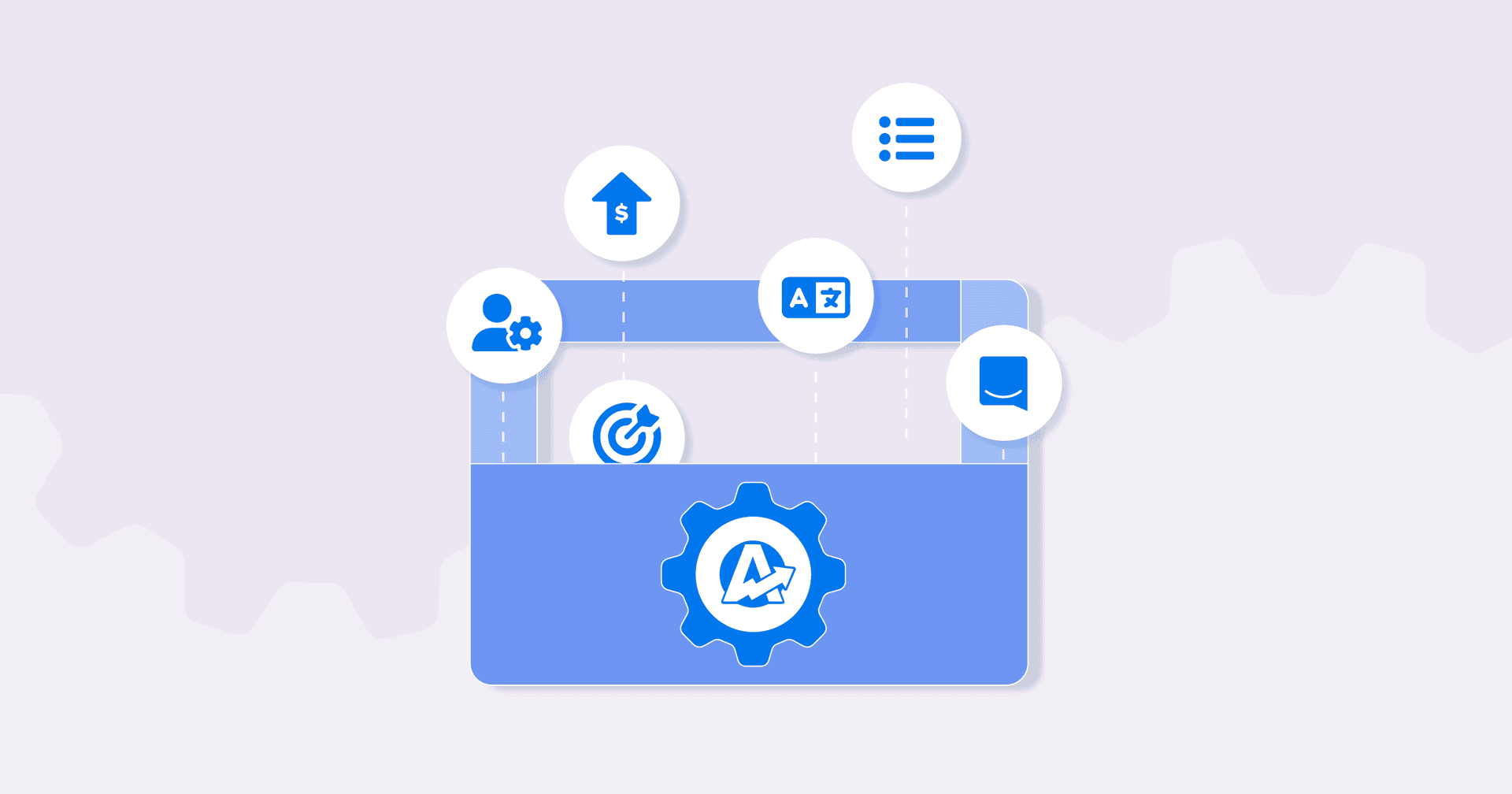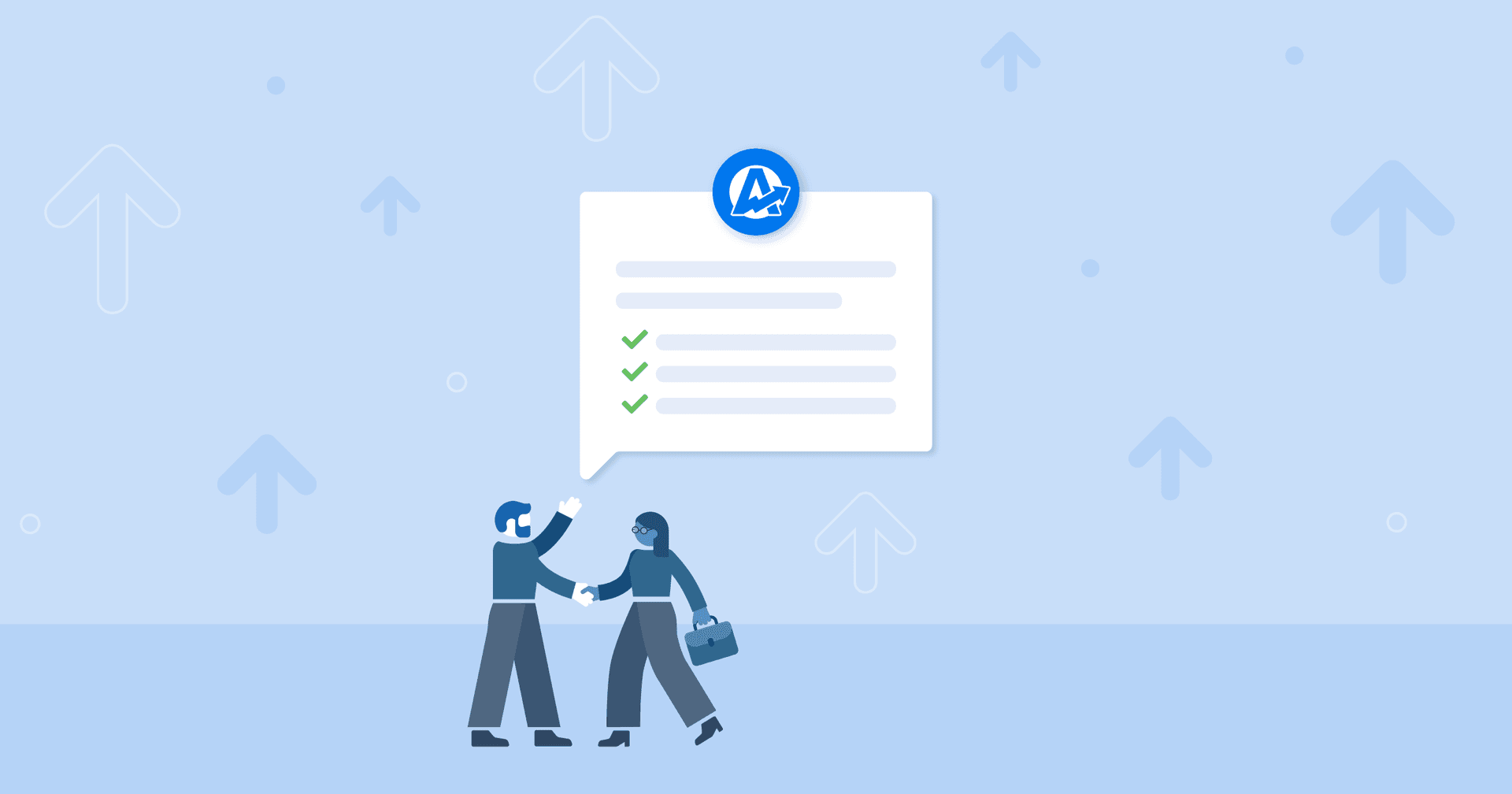Table of Contents
QUICK SUMMARY:
Many factors contribute to an agency's productivity, especially the user experience (UX) for key platforms. UX considers how a user interacts with a product or service, which affects delivery execution and effective time management. This article explores how AgencyAnalytics provides an intuitive reporting experience that prioritizes the end user. It also shares the importance of research in meeting customer needs, how our internal operations factor in UX, and recently introduced in-platform updates.
How many times has your agency encountered this common workplace struggle: Tools that should simplify workflows but instead just create more problems.
A bit of a paradox, right?
Using a platform with a human-centered design streamlines internal processes, automates repetitive tasks, and empowers your team to do their best work.
But what happens when UX falls short? The exact opposite: A poor user experience derails productivity, causes frustration, and even has the potential to harm client relationships. Plus, time is money–no one likes wasting billable time navigating complex interfaces, cursing the platform’s UX designer, and frantically looking for a fix when there’s other work to do.
AgencyAnalytics has been designed to remove this type of friction. By focusing on the UX design process, we’re committed to helping agencies produce solid reporting, access a user-friendly interface, and deliver a positive experience to clients.
This article explores the key ways AgencyAnalytics prioritizes the user experience. We’ll also share how customer base research is conducted to gain a deep understanding of user experiences.
What Is User Experience (UX) and Why Does It Matter?
User experience (UX) refers to the overall interaction a person has with a product, service, or system. It focuses on delivering seamless and enjoyable experiences that help the end user achieve their goals with minimal friction.
So, why is UX important for agencies? For starters, it directly impacts the ability to serve clients and manage operations smoothly. Whether it’s a project management tool or a client reporting system, these platforms should enhance your productivity–not slow it down.
Otherwise, you’ll probably spend more time fixing bugs or toggling with configurations instead of actually doing the job. After all, you’re a team of seasoned marketers, not UI designers or developers.
To sum it up, a good UX is important because it:
Reduces frustration by offering intuitive navigation and interfaces.
Saves time by streamlining workflows and automating repetitive tasks.
Improves outcomes by minimizing errors and presenting actionable insights.
Enhances client satisfaction by delivering polished, professional results.
By using tools that prioritize the user experience, you’ll be better positioned to deliver better results, maximize billable hours, and keep clients happy.
User Interface Should Not Be an Obstacle
How frustrating is it to deal with a confusing layout?
Not exactly a fun experience. It adds stress and unnecessary complexity to your already swamped teams and results in wasted billable hours. It makes you wonder, “Did UX designers even work on this?” If that question pops up, the answer is probably no.
That said, a negative user experience goes beyond a surface-level visual design. In fact, it has the potential to affect your productivity and output. Let’s explore the drawbacks of a bad UX.
Challenge | Solution |
|---|---|
Excessive Training for Team Members | Choose solutions that team members can adopt quickly without extensive training or steep learning curves. This ensures efficiency and faster implementation. |
Difficulty Accessing Customer Support | Pick platforms that offer reliable customer support to resolve issues promptly (e.g., a 24/5 live chat), which minimizes downtime and frustration. |
Frequent Errors or Bugs | As your roster grows, so does complexity. Therefore, choose robust tools that are built to handle an increased volume of data. This will reduce the chances of bottlenecks and glitches. |
Lack of Customization Options | Your chosen tools should allow customization (e.g., adding white labeling to client reports). This will increase your value proposition and ability to deliver tailored, client-centered results. |
Clunky, Complex Interface | Invest in user-friendly tools that present information in a palatable, easy-to-understand way. Look for key features like intuitive data visualization, functionality on mobile devices, and filtering options. |
Difficulty Integrating with Other Tools | Agencies often use more than one platform. Use tools that offer seamless integrations, which eliminate the need for manual data syncing and other time-consuming tasks. |
To sum it up, prioritize tools that adapt to your evolving needs from the get-go. This ensures your agency remains agile, efficient, and equipped to handle growth.
6 Ways AgencyAnalytics Prioritizes the User Experience
A client reporting tool makes life much easier. It’s what agencies use to monitor campaign performance, visualize data, and deliver top-notch results.
So it goes without saying–it absolutely must be user-friendly; there’s no way around it. It’s why AgencyAnalytics makes the customer experience a top priority, ensuring every element is carefully designed with our clients in mind.
Here are the exact ways our platform is purpose-built to meet customer needs.
1. Regularly Gathered Feedback Via a System Usability Scale (SUS)
To monitor customer feedback, we’ve implemented a System Usability Scale (SUS), which measures and improves platform usability. The SUS is a simple, standardized survey consisting of a series of questions designed to gauge satisfaction and ease of use.
Every three months, a random selection of AgencyAnalytics users are invited to complete the survey, which provides valuable insight into their experiences.
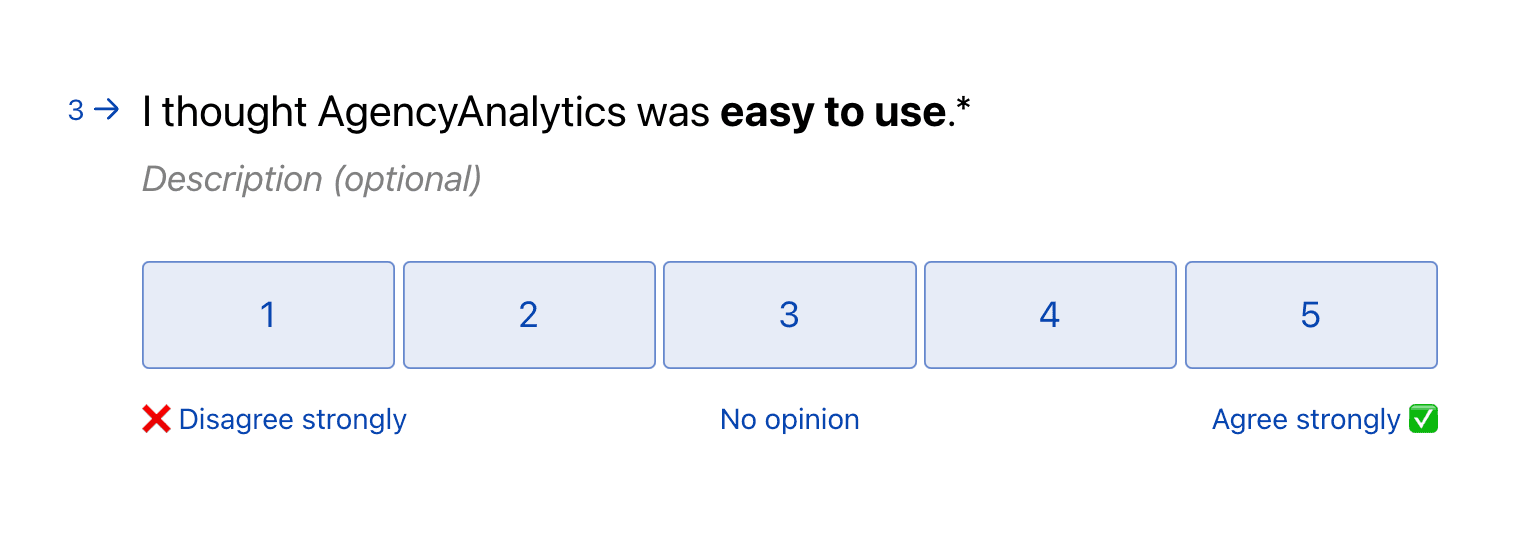
From a broader perspective, we also administer a Net Promoter Score (NPS) survey to gauge our customers’ overall sentiment toward the platform. This measures how likely a customer is to recommend our product (i.e., brand loyalty), providing further insight into the overall user experience.
2. User Experience Prioritization Within Our Internal Operations
User experience is at the core of everything we do.
Take our team composition, for instance. We’ve got a dedicated core User Experience (UX) team–a collaborative triad of a Product Manager, Product Designer, and Engineering Manager.
They share equal responsibility for shaping strategy, driving execution, and delivering meaningful results. This ensures all facets of the user experience are considered, like information architecture and graphic design. We also conduct internal reviews with employees, giving them an opportunity to evaluate design from business, technical, and UX design perspectives.
It doesn’t stop here, either. To ensure UX remains a top priority, our Design Leader plays a direct role in broader, annual strategic planning. This allows us to keep the spotlight on UX design principles and continuously provide a positive user experience.
3. The Rollout of New Features in Response to User Feedback
The best tools are built in collaboration with users. That’s why we make it our business to introduce highly requested features, ensuring agencies get what they actually want and need.
Here’s a quick overview of some of our most recent developments and how they enhance the user experience.
Alerts
Agencies need access to critical updates to make quick, effective decisions that keep campaigns on track. Whether a client hits a lead gen goal or an email bounce rate rises unexpectedly, staying informed is a must-have for timely action.
That’s exactly why the Alerts feature was developed. It allows agencies to set in-platform configurations tailored to specific metrics or conditions, ensuring real-time notifications when key events occur. This proactive approach minimizes delays and helps address potential issues before they escalate.
Use Alerts to:
Monitor Key Metrics Automatically: Set alerts for important metrics (like conversions or CTR). This eliminates the need for continual manual checks.
React Quickly to Issues: Get notifications about potential problems, such as spikes in ad spend or dips in traffic. This empowers your team to resolve these issues in little to no time.
Celebrate Milestones: Stay updated on wins like reaching ROI goals or surpassing target conversions. It helps your agency to promptly share milestones and demonstrate tangible results.
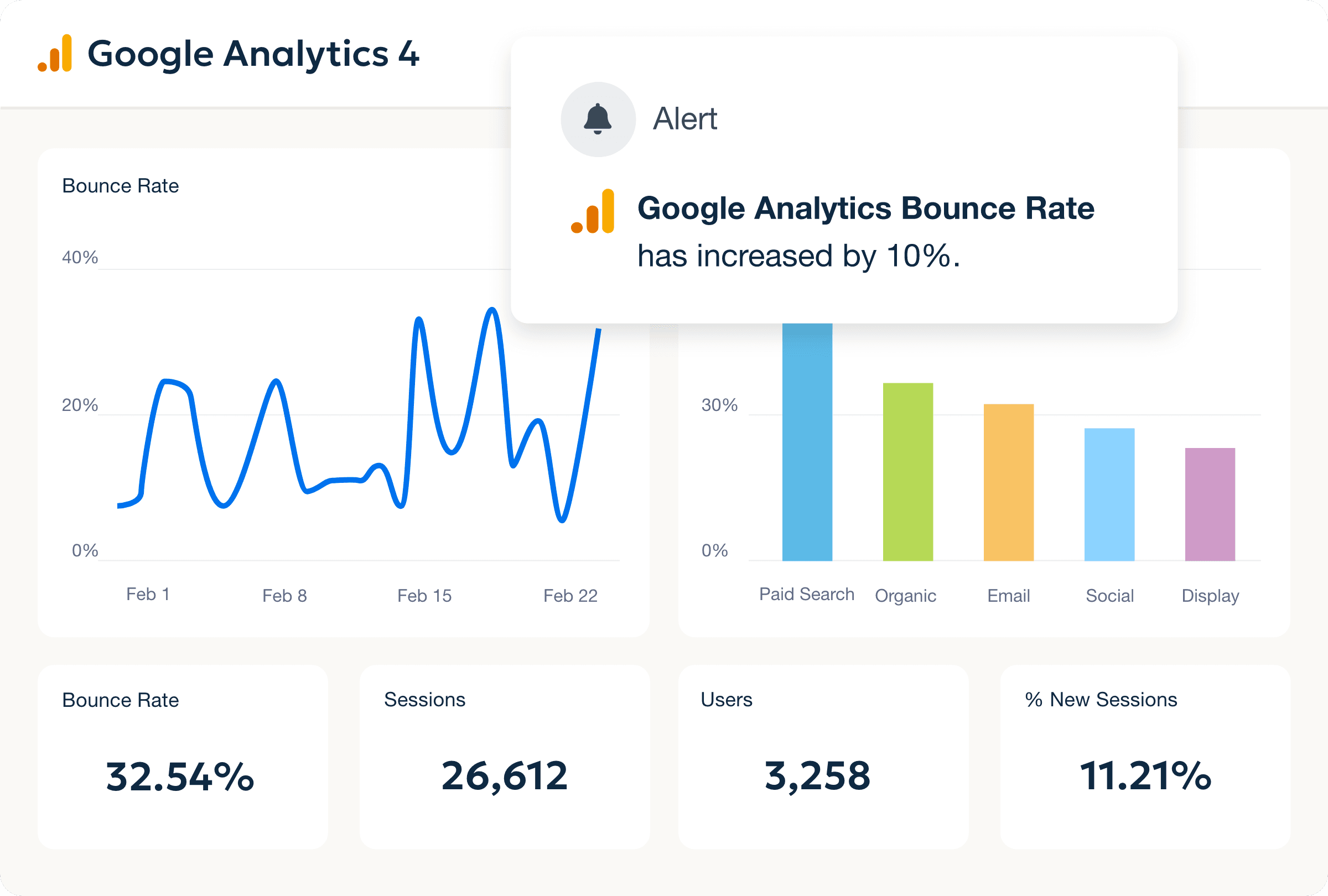
Get timely alerts whenever something critical happens. Monitor campaign performance, pick up on any anomalies, and ensure things run smoothly–explore AgencyAnalytics today, free for 14 days.
Ask AI & AI Summary
AI-powered tools help agencies get the job done quicker and more efficiently. To streamline marketing processes even more, we’ve recently introduced Ask AI and AI Summary–the latest evolution in client reporting.
Wondering what it’s all about? Here’s a breakdown:
Ask AI Quickly Generates Actionable Insights About Client Campaigns. Instead of manually analyzing a large volume of data, this feature does the heavy lifting for you. Use pre-defined prompts or ask a more specific question about client campaign performance–it’s up to you.
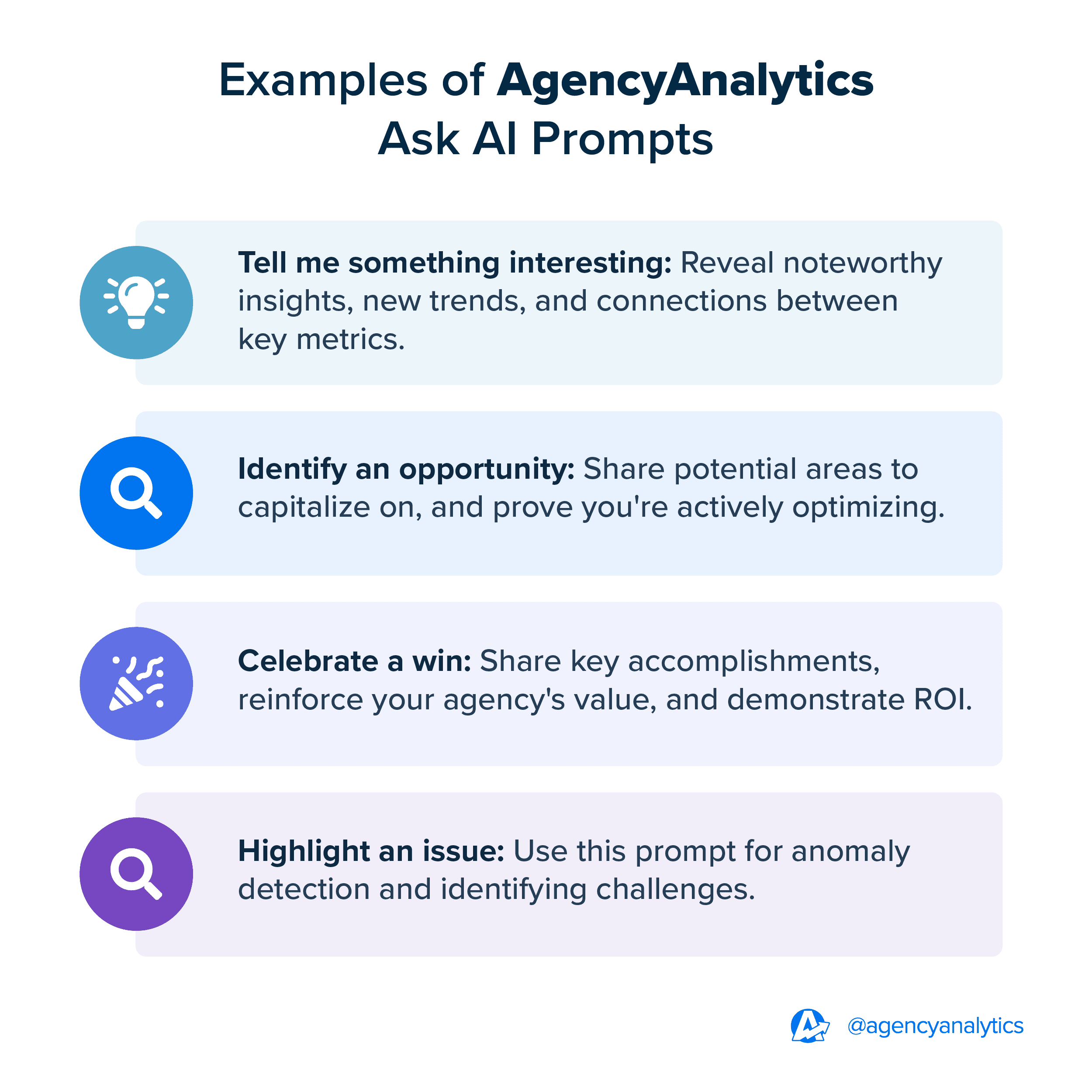
AI Summary Produces an Instant, Written Overview of Campaign Performance. No need to sift through mounds of data–use AI Summary to create a data-rich text snapshot. It quickly generates key takeaways, providing a concise executive summary that busy clients will appreciate.
Using the AI features in AgencyAnalytics helps us summarize a client report much faster than reading through results, typing up an email, and sending it to the client. The predictive analytics in Ask AI has certainly increased our productivity, helping us to do things much faster.
Kevin Watts, Founder, Raincross
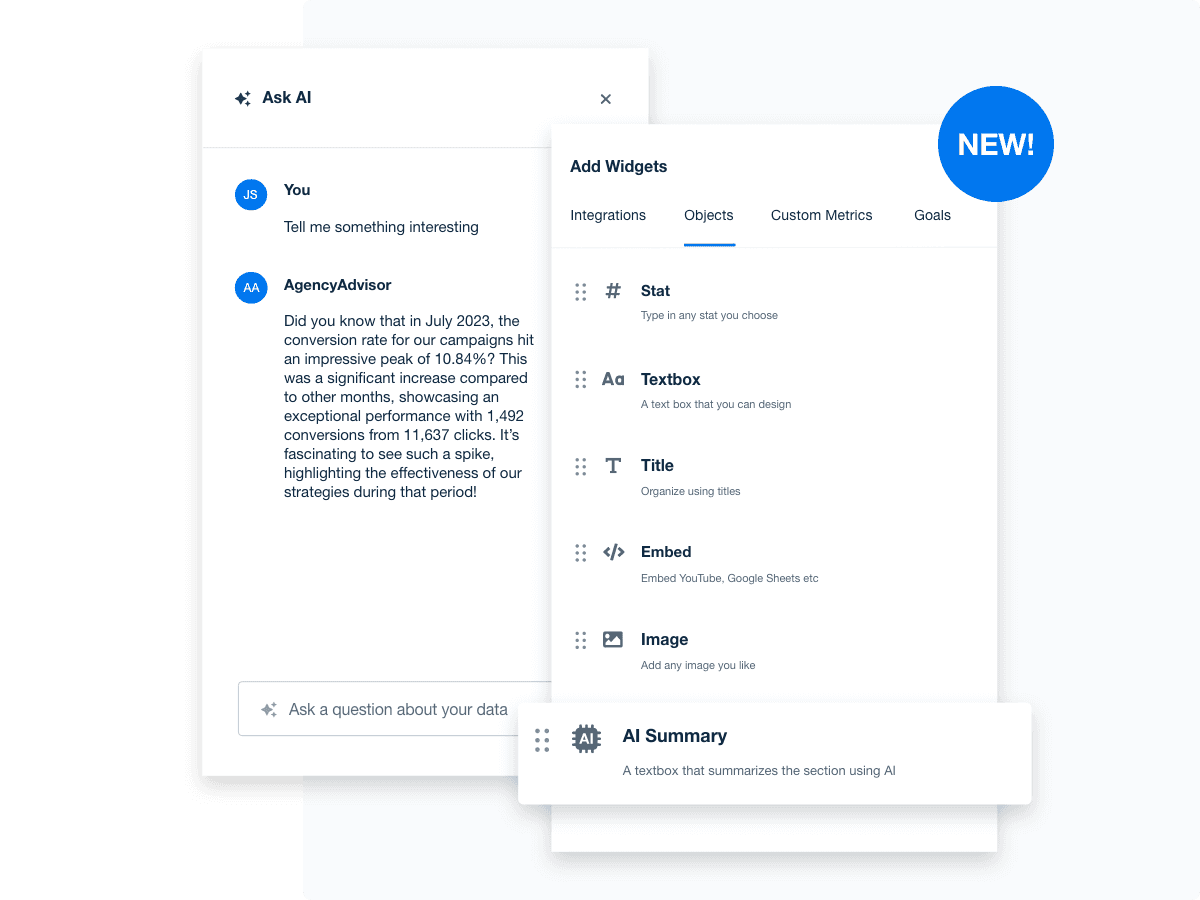
Bulk Operations
Too many repetitive administrative tasks will quickly eat up billable hours.
To reduce excessive manual work, we’ve developed the Bulk Operations feature. In a few clicks, replicate sections, apply templates, or update settings across multiple reports and dashboards.
It removes the hassle of making tedious individual updates, which frees up more time for high-value, strategic activities. This is especially useful for agencies that manage clients with similar goals, platforms, or reporting structures.
Additionally, Bulk Operations also applies to the report scheduling feature. Need some extra time to review reports before they go out? Simply pause or resume schedules across multiple campaigns.
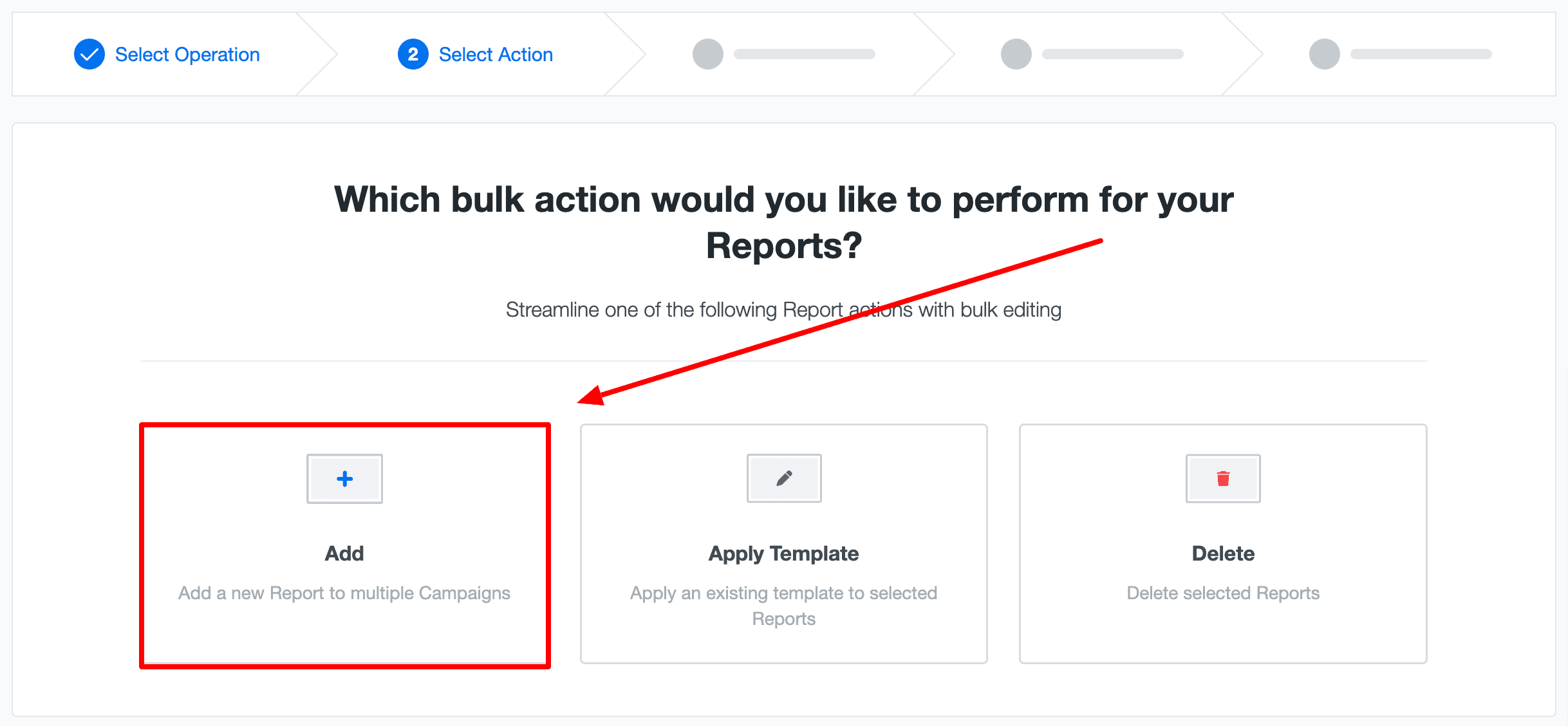
Multi-Select Widget Editing
Similar to Bulk Operations, multi-select widget editing makes it easy to apply blanket configurations in just a few clicks.
This feature streamlines internal workflows and allows multiple widgets to be updated, reorganized, or even deleted simultaneously. As a result, there’s more consistent formatting, faster customization, and less hassle.
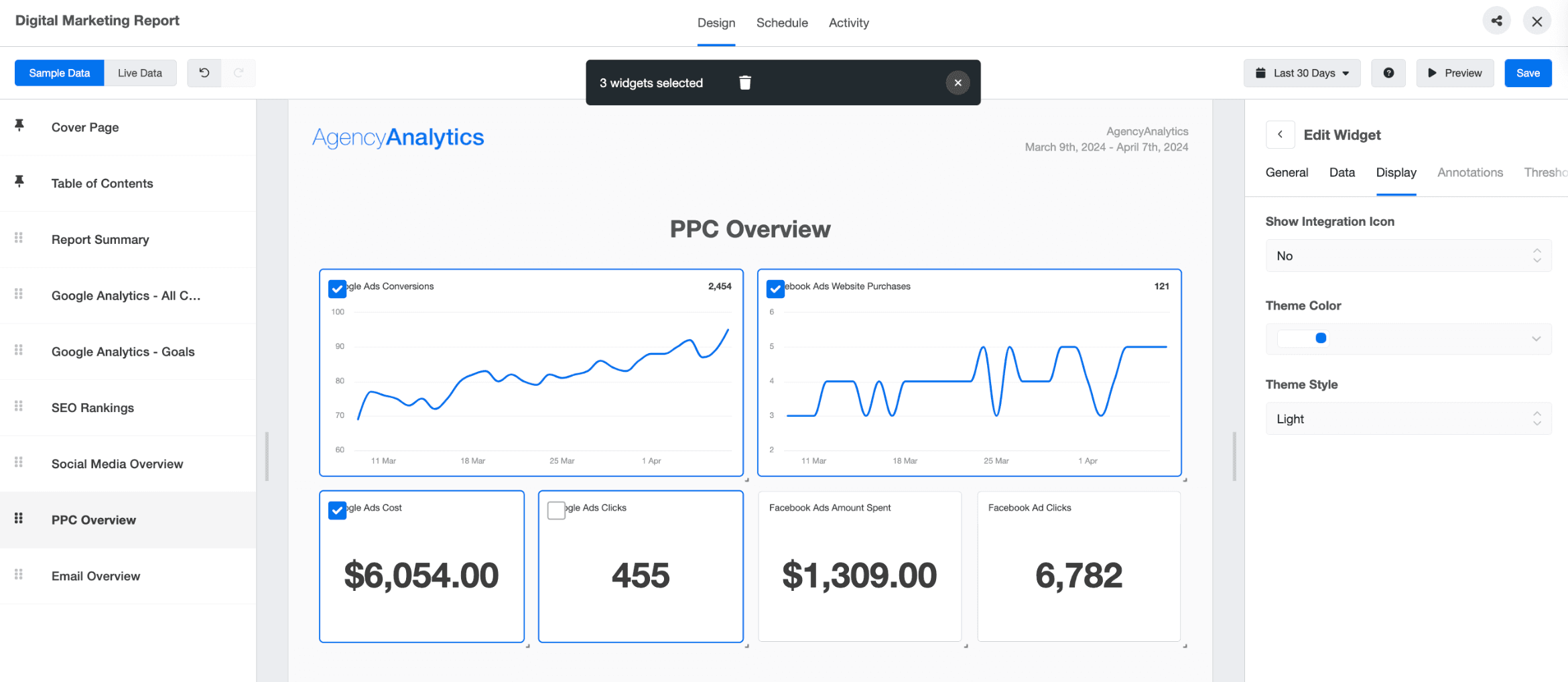
Smart Dashboards and Reports
According to our last Benchmarks Survey, agencies spend approximately 15 to 30 minutes finalizing a client report. With the recent rollout of Smart Reports and Smart Dashboards, we estimate this time will reduce even more!
In just 11 seconds, use the Smart Dashboard feature to auto-generate an interactive interface that’s full of your client’s real-time metrics. While you can use a pre-built dashboard template or build your own from scratch, this is our fastest option yet!
Similarly, a Smart Report comes in handy when you need a professional document that reflects your client’s individual campaigns and results. It’s the quickest way to present performance data clearly, without spending too much time on formatting.
Plus, this feature may also highlight alternative ways to present client data–ones that are more impactful
Sometimes, what’s showing on the Smart Report provides more value than what we had in our report templates. Data that we're showing with the raw number, Smart Reports presented as a bar chart. That's a better way, so we use those widgets.
Michael Smith, Operation Manager, EOS Healthcare Marketing
Disconnected Integration Notifications
Occasionally, integrations may disconnect from AgencyAnalytics—that's simply part of managing multiple tools. It may be due to technical updates, changes in authentication settings, or temporary issues in the connected platform.
That’s why we’ve introduced Disconnected Integration Notifications, designed to keep you informed at all times. This helps prevent blank dashboards, missing data, or any other disruptions in reporting. It’s another way we help keep your agency’s reporting seamless and stress-free.
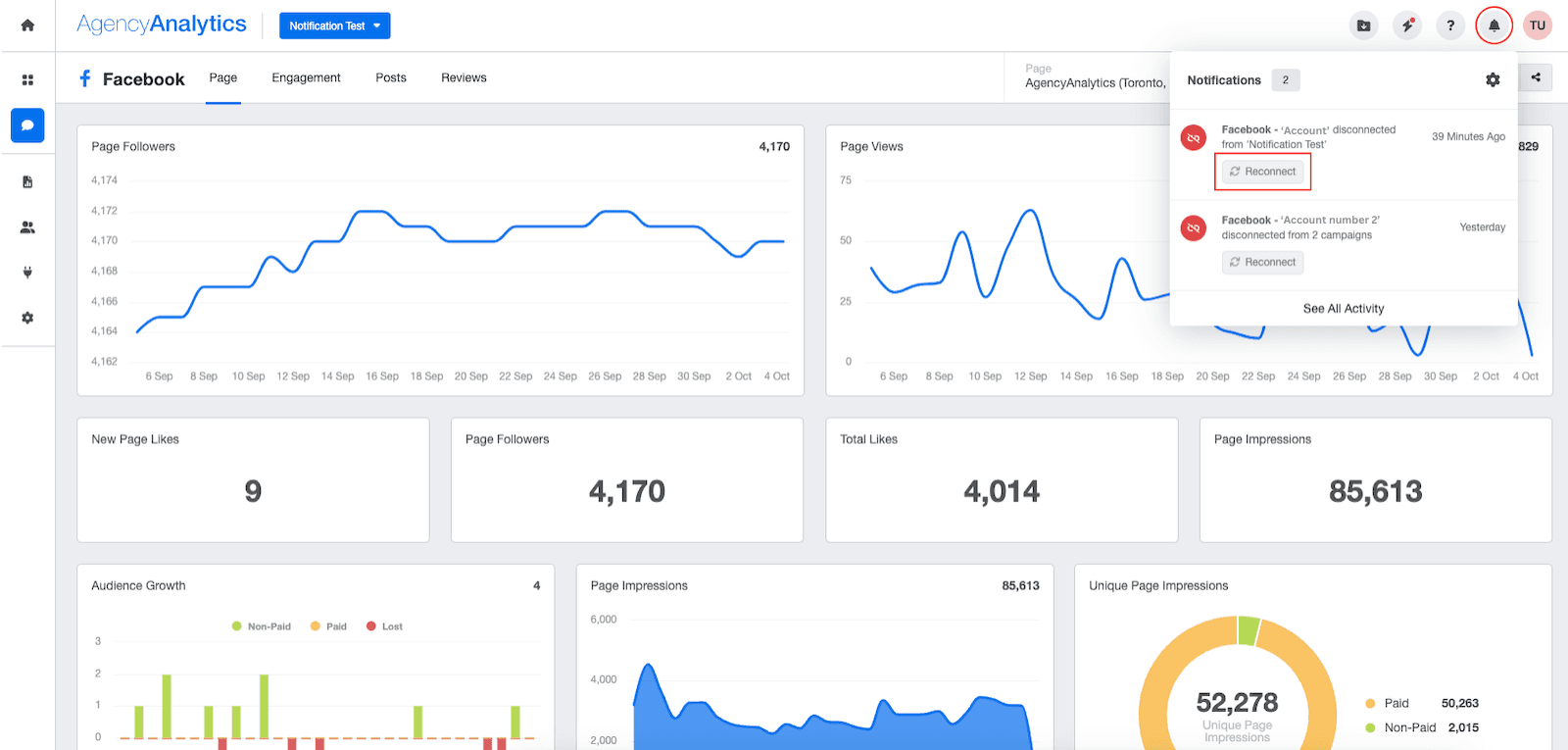
4. Responsive Customer Support via Live Chat
Support is always there when you need it.
Our 24/5 live chat connects you with real, friendly agents who know the platform inside out—no bots here! Whether it’s assistance with setting up dashboards or any other platform-related questions, we’re committed to providing you with a positive user experience.
Our previous platform had a barely there Support team. The system at AgencyAnalytics is second to none, providing live chats with real agents who help us problem-solve on the fly. I can't recommend this software enough.
Rachel Jackson, Lead SEO, Wit Digital
It’s not complicated, either. This feature is directly integrated into the AgencyAnalytics interface; all you have to do is click the message icon! If you prefer a self-serve format, our extensive Knowledge Base is also a great option.
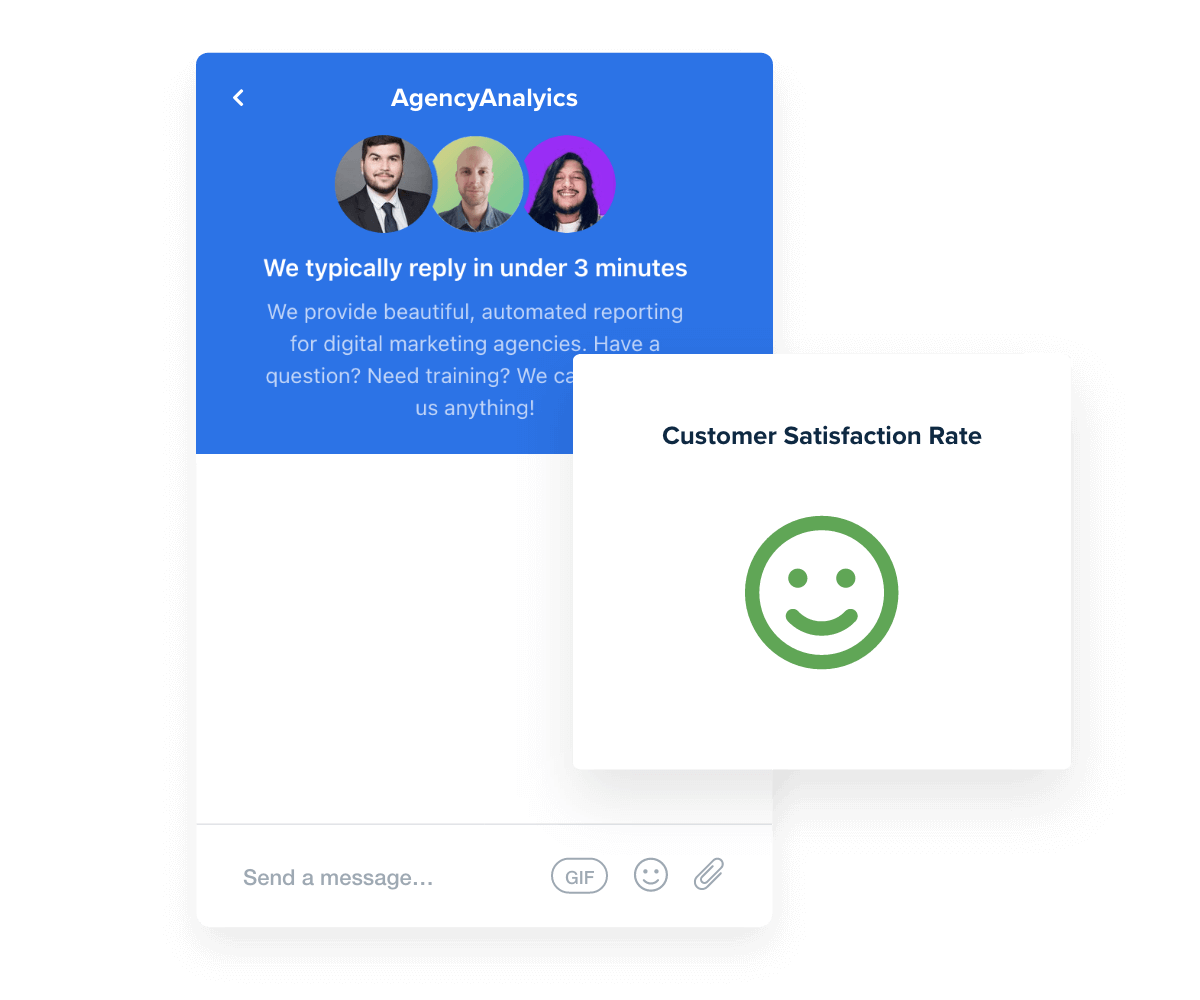
5. Optimized, Fast Loading Times
AgencyAnalytics is designed for speed, ensuring dashboards and reports remain instantly accessible—even when handling large volumes of data.
That’s why we’ve worked on delivering a few enhancements like:
Faster PDF Generation: Need to share reports quickly? Our optimized PDF generation creates professional-quality reports in seconds, saving time and keeping your team and clients informed without delays.
More Seamless Navigation: Open, edit, and close reports or dashboards without waiting for pages to load. This speedy update keeps workflows efficient and optimized, no matter the task at hand.
We strive to improve efficiency in every interaction. This allows your team to focus on what matters most—delivering results to clients.
6. Continuous Improvement Through Usability Testing
To ensure customer satisfaction, we conduct random, regular usability tests based on specific features within the AgencyAnalytics platform.
This iterative approach ensures that any pain points are identified and addressed promptly. In doing so, we’re better able to refine features and deliver a seamless user experience. Here’s how it works:
Randomly selected participants are given a realistic in-platform task to uncover potential friction points.
Data from the tests is aggregated and analyzed to pinpoint usability issues (e.g., a lag when clicking interactive elements).
Feedback is categorized based on severity, which helps our team to prioritize accordingly.
Through regular user research, we ensure our platform evolves in ways that genuinely enhance overall platform performance.
Invest in a Client Reporting Tool That Puts the User Experience at the Forefront
A well-designed user experience is the foundation of any effective reporting platform.
AgencyAnalytics prioritizes customers at every junction, which ensures our platform is designed with the end user’s interaction in mind. By avoiding common challenges–such as steep learning curves, unresponsive support, and clunky interfaces–we provide a solution that empowers agencies to do their best work.
We’re always listening to input from our customers, whether it’s provided through votes on our product roadmap for new features and functionality or through chats with our sales, customer success, and support teams. AgencyAnalytics also has a team of product design experts dedicated to making our platform easy, efficient, and enjoyable to use.
Daniella Ingrao, Product Marketing Manager, AgencyAnalytics
Whether it’s through AI-driven features, customizable dashboards, or responsive support, we’re committed to providing agencies with the best experience possible.
The result? Happier teams, more satisfied clients, and an agency that’s poised for growth. If you’re ready to explore AgencyAnalytics for yourself, sign up for a free 14-day trial today.
Impress clients and save hours with custom, automated reporting.
Join 7,000+ agencies that create reports in minutes instead of hours using AgencyAnalytics. Get started for free. No credit card required.

Written by
Faryal Khan is a multidisciplinary creative with 10+ years of experience in marketing and communications. Drawing on her background in statistics and psychology, she fuses storytelling with data to craft narratives that both inform and inspire.
Read more posts by Faryal KhanSee how 7,000+ marketing agencies help clients win
Free 14-day trial. No credit card required.



